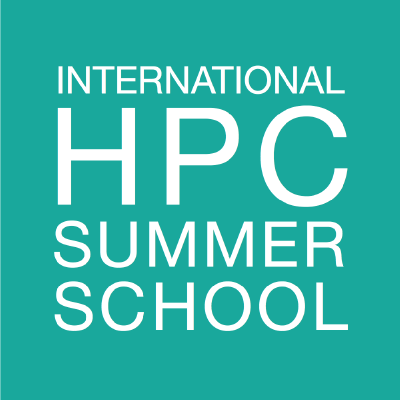Code of Conduct
A primary goal of the International HPC Summer School (IHPCSS) is to be inclusive to the largest number of contributors, with the most varied and diverse backgrounds possible. As such, we are committed to providing a friendly, safe and welcoming environment for all, regardless of gender, sexual orientation, ability, ethnicity, socioeconomic status, and religion (or lack thereof).
This code of conduct outlines our expectations for all those who participate in our community (students, mentors, staff, and others), as well as the consequences for unacceptable behavior.
We invite all those who participate in the summer school to help us create safe and positive experiences for everyone.
1. Expected Behavior
The following behaviors are expected and requested of all IHPCSS participants and community members:
- All participants, attendees, IHPCSS staff, and related personnel are to be treated with respect and dignity, valuing a diversity of views and opinions.
- Be considerate and collaborative, critiquing ideas rather than individuals.
- Communicate openly with respect for others, regardless of race ancestry, place of origin, colour, ethnic origin, citizenship, religion, gender, sexual orientation, age, disability, scientific field, or research topic.
- Be mindful of your surroundings and of your fellow participants. Alert IHPCSS staff if you notice a dangerous situation, someone in distress, or violations of this Code of Conduct, even if they seem inconsequential.
- Respect the rules and policies of the meeting venue, hotels, IHPCSS contracted facility, or any other venue.
Be careful in the words that you choose. We are a community of professionals and we conduct ourselves professionally.
2. Unacceptable Behavior
The following behaviors are considered harassment and are unacceptable during the summer school. If a community member engages in unacceptable behavior, they may be asked to leave the event without warning or refund, at the sole discretion of the IHPCSS organizers.
- Physical or verbal abuse of any attendee, speaker, volunteer, exhibitor, IHPCSS staff member, service provider, or other meeting guest.
- Examples of unacceptable behavior include, but are not limited to, harassment, intimidation, discrimination, inappropriate use of nudity and/or sexual images in public spaces or in presentations, or threatening or stalking any attendee, speaker, volunteer, exhibitor, IHPCSS staff member, service provider, or other meeting guest.
- Disruption of talks at oral or poster sessions, in the exhibit hall, or at other events organized by IHPCSS at the meeting venue, hotels, or other IHPCSS-contracted facilities.
3. Consequences
Unacceptable behavior from any community member, including staff and those with decision-making authority, will not be tolerated.
- Anyone requested to stop unacceptable behavior is expected to comply immediately.
- IHPCSS staff (or their designee) or security may take any action deemed necessary and appropriate, including immediate removal from the meeting without warning or refund.
- IHPCSS reserves the right to temporarily ban or permanently expel anyone from the IHPCSS events and activities without warning (and without refund).
- IHPCSS reserves the right to prohibit attendance at any future event.
4. Reporting Unacceptable Behavior
If you are the subject of unacceptable behavior or have witnessed any such behavior, please notify an IHPCSS staff member when you can. Reports that are made promptly are more straightforward to address, but reports of unacceptable behavior will be taken seriously regardless of when they are made. Conference staff can be identified by their badges.
- Please contact any IHPCSS staff person in person or by email.
- Be prepared to report:
- Time and place of the incident
- The individuals involved
- Circumstances surrounding the incident
- Whether you would prefer to include your name in the report or not
- Anyone experiencing or witnessing behavior that constitutes an immediate or serious threat to public safety is advised to call the emergency number 112, and locate a house phone and ask for security.
When taking a personal report, our staff will ensure you are safe and cannot be overheard. We may involve other event staff to ensure your report is managed properly. Once safe, we’ll ask you to tell us about what happened. This can be upsetting, but we’ll handle it as respectfully as possible, and you can bring someone to support you. You won’t be asked to confront anyone and we will make every effort to preserve confidentiality.
Our team will be happy to help you contact hotel/venue security, local law enforcement, local support services, provide escorts, or otherwise assist you to feel safe for the duration of the event. We value your attendance.
5. License and Attribution
This code of conduct is based on:
- The example anti-harassment policy from the Geek Feminism wiki, created by the Ada Initiative and other volunteers.
- The example from Citizen Code of Conduct, a project of Stumptown Syndicate.
If you have any questions about the code of conduct, or would like to discuss these issues further, please feel free to contact Scott Callaghan (scottcal@usc.edu) or Weronika Filinger (w.filinger@epcc.ed.ac.uk).
